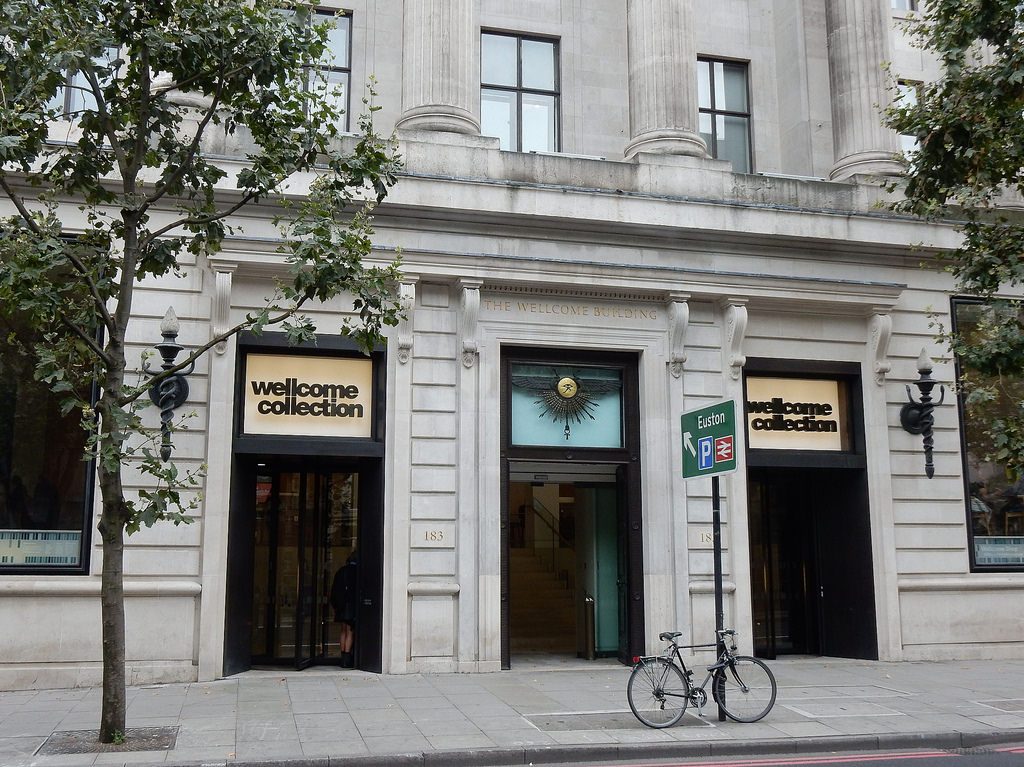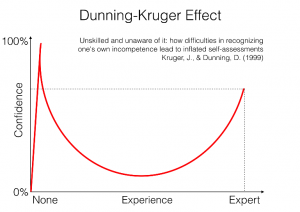You might like to visit the Wellcome Collection which is a free museum and library with many different events that create opportunities for people to think deeply about connections between science, medicine, life and art.

You might like to visit the Wellcome Collection which is a free museum and library with many different events that create opportunities for people to think deeply about connections between science, medicine, life and art.

Daniel Addis, Teacher of Classics here at WHS, offers an insight into the need for breadth in students and teachers’ education and how they can acquire it.
 They say a little knowledge is a dangerous thing. If we consider the Dunning-Kruger effect (demonstrated on the diagram to the right) we might agree. The principle is that ‘knowledge without sufficient experience can lead to an overestimation of ability’. It is no surprise that Donald Trump has been nicknamed the ‘Dunning-Kruger President’ in articles by the New York Times, Bloomberg, and the Independent. I recall an interview where he tries to explain uranium to his audience:
They say a little knowledge is a dangerous thing. If we consider the Dunning-Kruger effect (demonstrated on the diagram to the right) we might agree. The principle is that ‘knowledge without sufficient experience can lead to an overestimation of ability’. It is no surprise that Donald Trump has been nicknamed the ‘Dunning-Kruger President’ in articles by the New York Times, Bloomberg, and the Independent. I recall an interview where he tries to explain uranium to his audience:
“You know what uranium is, right? This thing called nuclear weapons like lots of things are done with uranium including some bad things.”
The ignorance is palpable. One cannot help but feel that he has learnt a lot of this information in the very recent past. He has absorbed so little of it that he has become overly confident with his knowledge of the subject. I hope I am not alone in feeling thoroughly worried by this man and his proximity to the proverbial big red button. A little knowledge is truly a dangerous thing.
In the face of this, we should surely adopt a Socratic approach; “the only thing I know is that I know nothing.” By acknowledging our own ignorance, we do not risk the negatives of living beyond our intellectual means; the embarrassing demonstration of knowledge half-baked, the pub quiz question we definitely know the answer to being wrong, or a lack of understanding in the political climate leading to nuclear war. ‘Ignorance is bliss’, or is it?
As teachers, we have progressed to the far end of the Dunning-Kruger graph. We have the experience to move beyond the initial confidence level, through the trough of timidity to the position of expert in our subject. We are authorities on the syllabus and all is known to us. Hurrah!
But is there a danger that we could be elsewhere in the Dunning-Kruger graph? If we consider the graph to concern the sum of human knowledge rather than just the knowledge of our own subject, surely the specialisation in our own area of expertise, to the detriment of other knowledge, means that the level of overall experience is low. We do not have the breadth of knowledge required to move beyond the initial peak of overconfidence. And we have seen the danger of that…
It is important in our role as teachers that we continue to broaden our horizons, to learn more about the wider world beyond our subject and our specialty. By advocating our individual areas, we can damage the overall learning of the student. Naturally, we want to promote our subject, the bastion of our intellectual development. There is a reason we have attached ourselves to these monikers of learning, such as an inspiring teacher or a book that had us gripped from cover to cover. Particularly for the 6th Form or for options lower down the school, we want to sell our subject, to show students how our subject can pique their interest. We have to be incredibly passionate, otherwise our subject may be disregarded and all that knowledge remains unutilised and undiscovered.
We are particularly fervent in the Classics department for this very reason. I can guarantee every Classics teacher has memorised the ‘why learning Classics is still relevant and important’ speech due to how often we have to spout it. This breeds an element of competition in teachers, who feel they must defend their subject against the onslaught of other options. We are in a fight to keep our relevance and our numbers high. This has engendered an ‘Ivory Towers’ model of teaching, where each subject is in opposition to the others rather than collaborating to gain the best results for students.
Whilst the British system of subjects is fantastic for producing a depth of knowledge in those students who study them, we as teachers need to be advocating a far broader array of knowledge. What is an education that only focuses on one area? How can we truly learn Shakespeare without understanding Greek Theatre? How can we truly learn physical Geography without an understanding of the scientific elements that fabricate our world? How can we truly learn French without knowledge of the history of the Europe?
It is our responsibility as teachers to keep learning, expanding our horizons, and putting our subject in context with others. The ‘Ivory Towers’ model is not only defunct, it is damaging and we must try to move beyond it. Students will be learning the same skills in a variety of classes. Understanding of major concepts such as justice and morality can happen in History just as much as R.S. Analysis of literature is not just the preserve of English, but of MFL and Classics as well. Logical processing and methodology occurs in Maths, Sciences, Geography, Languages, History, and more. The similarities are much more prominent than the differences.
I will stop at suggesting a thorough re-examination of our entire curriculum. I think our subject-based system allows students to study what they are interested in with a depth and insight that other models of teaching do not allow them. However, they need to be exposed to a wider array of material in order to develop the cultural capital needed to be high functioning members of our society. Unfortunately, it does not happen naturally. The percentage of students who decide for themselves to delve beyond the syllabus is disappointingly low. We, as teachers, need to be the examples for them to follow. The syllabus is a base point but we must indicate what else is out there for them to discover.
I appreciate this sounds an awful lot like hard work. Not only learning your specification but what others are teaching as well?! The job of a maniac! However, there is an easy solution… Explore and Rosewell lectures. Sit and listen about the wider world. From brain surgery to rainforests; classical myths to Chinese politics; just sit and listen. Enhancing our own learning can only help our students and demonstrate to them the benefits of the holistic education. By developing the breadth of our own learning, we build the level of scholarship throughout the school. We tear down those ‘Ivory Towers’. We create a love of learning beyond the minimum required. Moreover, we can show that it is worth the time. Unfortunately, we are time poor as a profession. However, demonstrating that it is worth that hour to listen to a lecture will increase its value for everyone; students, staff, friends, parents etc. The more people we can have attending these lectures, the more our collective intellectualism will grow and flourish. If we consider the methodology of our recent visitor Guy Claxton, we should be facilitating and encouraging learning by the students and allowing them to do the majority of the research and discovery. What better way to embody this ideology than to show support for extra-curricular and cross-curricular learning by an expert in the field.
There is a famous expression ‘Jack of all trades and Master of none.’ What a negative ideology, I have been tarred many times with this linguistic brush. “Why would you want to try many things when you could be really good at one thing?” “Why would you do something if you are not the best at it?” It creates a culture of fearing the unknown, of deriding those who are not experts but are enthused. No one wants to be a Jack, but people rarely finish the expression. In full:
‘Jack of all trades, Master of none, but better than a Master of one.’
Let’s stop being Masters and be Jacks. Let’s broaden our knowledge of the entirety of what the world has to offer. Let’s Explore. You never know what you might learn.
Twitter: @AcademicSch_WHS